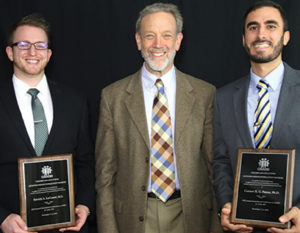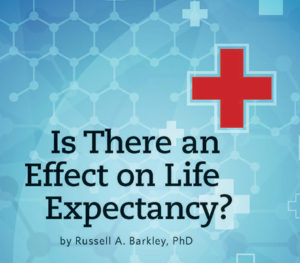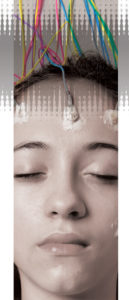The latest issues of Attention Magazine are only available to members. Become a member and keep up to date with the latest on ADHD.
Attention Magazine February 2019

Mindfulness, Meditation, and Yoga as Treatments for ADHD
Lauren Haack PhD
THIS RESEARCH UPDATE focuses on a single overarching question: Are third-wave therapies (such as mindfulness, meditation, and yoga) effective in treating ADHD? The first paper integrates several studies in youth and the second paper focuses on a single randomized controlled trial in college students. Are mindfulness, meditation, and yoga effective treatments for ADHD in children?…

Celebrating Emerging ADHD Researchers
Zuali Malsawma
CHADD IS PLEASED TO PRESENT the 2018 Young Scientist Research Awards to Connor H.G. Patros, PhD, and Patrick A. LaCount, MS. Selected from a pool of well-qualified applicants by experts in the field, these young researchers are making contributions to our understanding of ADHD. Application reviewers from CHADD’s Professional Advisory Board examined the research study…

The Challenging Horizons Program and School Success
Mark Katz, PhD
THE CHALLENGING HORIZONS PROGRAM is a school-based treatment model for middle- and high-school students with ADHD. The CHP specifically targets the social and academic challenges many of these students experience. Students participating in the CHP meet with staff several times during the school week and learn organization skills, study strategies, and social behaviors. Unlike some…

ADHD and Life Expectancy: Treatment Matters More Than You Might Think
CHADD and Russell A. Barkley, PhD, Partner to Announce Findings THE MESSAGE IS CLEAR. Treatment for ADHD, along with the related health risks it poses, has the possibility of adding an average of nine to thirteen years to the lifespan of children and adults diagnosed with ADHD. This is the implication of a cutting-edge research…

Health Outcomes of ADHD: Is There an Effect on Life Expectancy?
Russell A. Barkley PhD
THE MAIN MESSAGE of my presentation at the 2018 conference concerned the health consequences of ADHD. Specifically, I addressed how those consequences might add up over time and accumulate to the point that there might be an adverse effect on a person’s life expectancy. Now, in our study, we looked at that in several ways.…

Children and Violent Behavior: Where it Comes From and What to Do
Dan Shapiro
MANY CHILDREN HAVE VIOLENT THOUGHTS AND AGGRESSIVE BEHAVIORS. Normal rough-and-tumble play-fighting can get too rough. Kids hit, kick, scratch, bite, throw, or even choke. Many children enjoy playing with toy guns. Even in households where toy weapons are banned, kids will still pretend to be warriors, making rifles out of sticks and guns out of…

Managing Inattentive ADHD with Psychosocial Treatments
Linda Pfiffner PhD
INATTENTIVE ADHD is the most common form of ADHD. It is less well recognized than other forms of ADHD, however, because overactivity and disruptive behaviors are usually not a concern. Instead, regulating attention and executive dysfunction (difficulty planning and organizing goal-directed behavior) are the primary reasons children with this form of ADHD struggle at school…

Homework: Do You Take More Responsibility Than Your Child Does?
Carey A. Heller, PsyD
AS A PSYCHOLOGIST who specializes in ADHD and executive function issues, I often focus on issues around homework when I meet with parents and their child or teen. During conversations about homework, I often find myself wondering, “Is the parent more invested in the homework getting done than the child?” In fact, I actually often…

Summer Camps: Like Horses for Courses
CHADD Staff
We often hear the phrase “one size fits all.” However, this is not always the case–especially when picking just the right summer camp to meet the needs (and interests) of your child. My English grandfather, an enthusiastic racehorse owner, used to say that some horses preferred the hard, dry race tracks of the chalk uplands…

Frenzied, Frazzled, and Overwhelmed: The Interaction of Hormones and ADHD in Women in Midlife
Carol Robbins PhD
MANY WOMEN STRUGGLE at midlife with undiagnosed and untreated ADHD complicated by hormonal changes, which often span two decades. They typically report feeling overwhelmed, inadequate, misunderstood, and distressed at a time in their lives when they often have the greatest demands on their time and energy. Their problems can be exacerbated by the denial of…

Neurofeedback Treatment for ADHD
L. Eugene Arnold MD, MEd
NEUROFEEDBACK is a painless way for people to get information about the electrical activity in their brains and change it. Electrical activity is how brain cells send signals. When someone undergoes neurofeedback, sensors are placed on their head to measure electrical activity, which shows up as “brain waves” on a screen. The waves can be…
